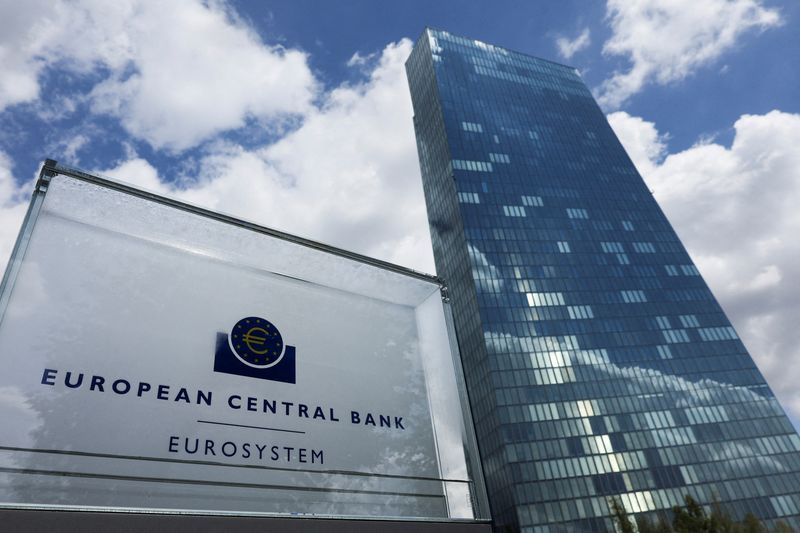By Balazs Koranyi and Frank Siebelt
FRANKFURT (Reuters) - The euro zone inflation outlook has failed to improve since a July rate hike, European Central Bank board member Isabel Schnabel said, suggesting she favours another large interest rate increase next month even as recession risks harden.
The central bank for the 19-country bloc surprised investors with a 50-basis-point rate hike last month fearing that inflation, now approaching double digit territory, was at risk of getting entrenched.
That move was not enough to alter the inflation outlook, however, and even a recession on its own would not be enough to tame price pressures, said Schnabel, the head of the ECB's market operations.
"In July we decided to raise rates by 50 basis points because we were concerned about the inflation outlook," she told Reuters in an interview. "The concerns we had in July have not been alleviated... I do not think this outlook has changed fundamentally."
A rate hike in September is seen a done deal with policymakers split between 25 and 50 basis points. Schnabel's comments suggest she is likely to advocate a bigger increase.
Markets have been raising their rate hike bets in recent weeks as inflation pressures appear to mount, and now price in a 55 basis point increase for September and a combined 118 basis points of moves by the end of the year.
The problem is that at 8.9%, inflation is more than four times the ECB's 2% target and could still go higher even as surging energy costs sap purchasing power and slow growth.
"I would not exclude that, in the short run, inflation is going to increase further," Schnabel, a conservative policymaker, said.
"These inflationary pressures are likely to be with us for some time; they won’t vanish quickly," she said. "It will take some time until inflation gets back to 2%."
Although inflation is likely to slow sharply in the coming years, Schnabel noted that ECB projections have been wrong in recent quarters so actual price growth figures need to be given greater weight in policy decisions.
For the full Q&A with Schnabel, click on:
RECESSION?
A complication for the ECB is that its rate hikes come just as a recession, induced by surging oil prices, looms large over the bloc. Tightening policy while entering a recession risks exacerbating any downturn.
Schnabel acknowledged the recession risk but said that there are a number of signs suggesting that inflation expectations may be getting "de-anchored," central bank speak for a loss of trust in the bank's willingness to deliver on its mandate.
"There is a strong indication that growth is going to slow and I would not rule out that we enter a technical recession, especially if energy supplies from Russia are disrupted further," Schnabel said.
"Downside risks to economic growth have also increased due to additional supply-side shocks, caused by droughts or the low water levels in major rivers," she said. "It seems that, out of the larger euro area countries, Germany is hit the hardest."
While a recession will dampen price pressures, on its own it will not be enough to get inflation back to target.
"Even if we entered a recession, it’s quite unlikely that inflationary pressures will abate by themselves," Schnabel said. "The growth slowdown is then probably not sufficient to dampen inflation."

Another complication is that rate hikes are bound to push up borrowing costs disproportionately on the bloc's periphery, putting more indebted nations like Italy or Greece at greater risk.
But the ECB has been skewing bonds buys towards Southern Europe in recent weeks to alleviate market pressures and Schnabel said the markets were more stable now even if volatility remains elevated and liquidity is low.